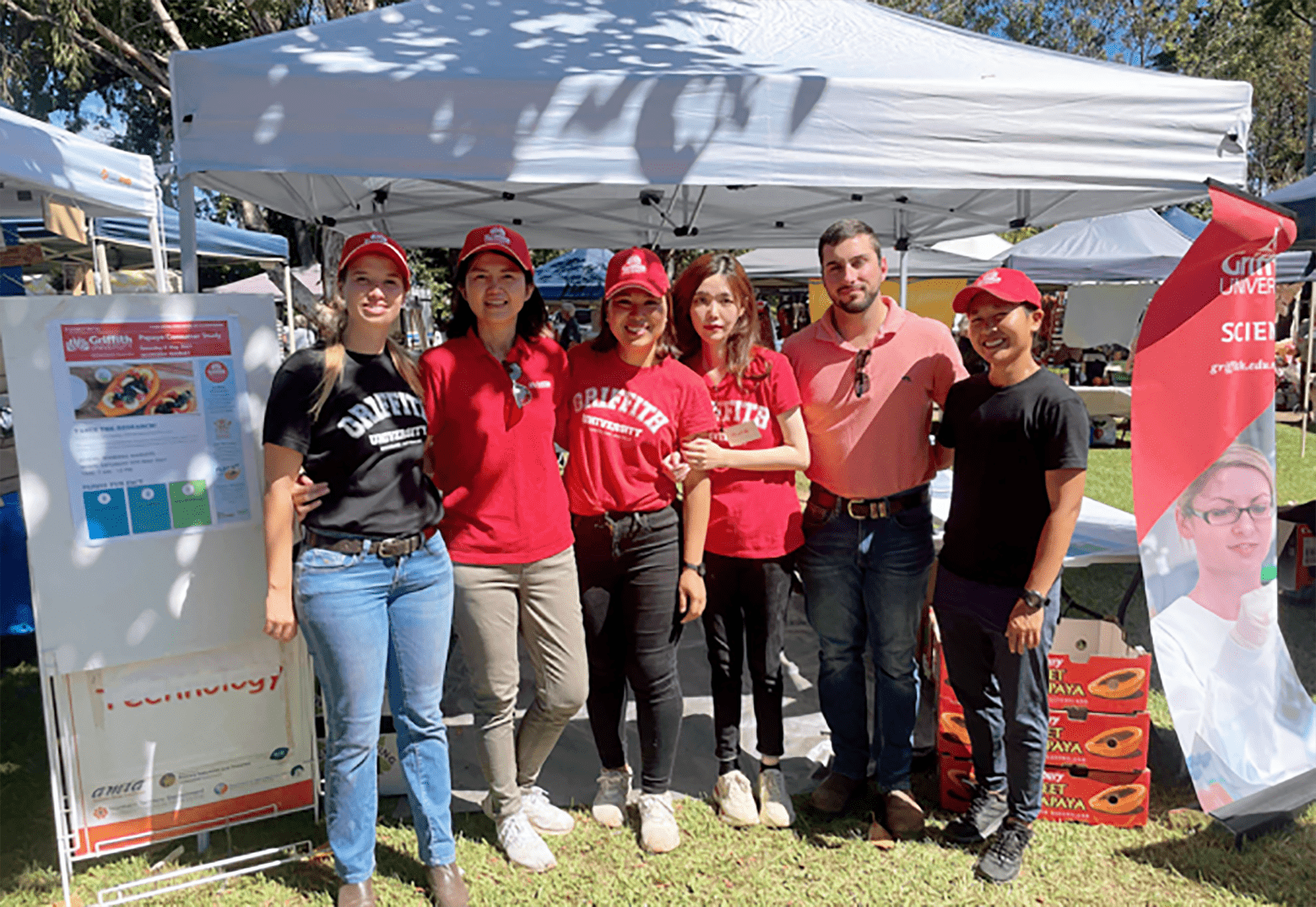

Tastier Australian papaya through international collaboration
February 28, 2022

One way the Crawford Fund supports and encourages the next generation of Australians in study, careers and volunteering in international agricultural research is through our highly sought after Student Awards, funded by our State and Territory Committees and made possible by organisations including ACIAR, international centres, Australian and overseas universities and NGOs.
Our 2022 awards are now open so check out the application process here.
In 2020, we announced 12 tertiary students had won awards to gain international agricultural research experience and expertise. While COVID-19 has caused delays in undertaking some awardees’ work, other students have managed ‘wraparound’ strategies to ensure the work is carried out without the planned travel.
We would like to share the successful ‘wraparound’ experience of Ms Ziwei Zhou, a PhD student at the Centre for Planetary Health and Food Security, Griffith University (GU), who received her Student Award in 2020 for a project using gene editing techniques to identify genes associated with sweetness in papaya fruit with the aim of improving flavour.
Ziwei Zhou’s research was undertaken throughout 2021 and the project had two major aims:
- to develop collaboration and exchange knowledge of papaya improvement between GU, Australia, and Kasetsart University (KU), Thailand; and,
- to profile the Australian papaya flavour and investigate the expression levels of candidate genes which related to desired papaya flavour traits in Australian and Thai papaya varieties.
“The initial plan was for me to visit Thailand and conduct a short research project to study flavour genes in Thai cultivars, which were identified from Australian papaya. However, due to international travel restrictions, the research plan was revised to a collaborative project conducted in Australia, managed through remote communication via Zoom,” said Ms Zhou.
Papaya is a tropical fruit crop cultivated worldwide. It has high productivity, nutritional value, and non-food functionality, which makes it as an important economic fruit crop in both Australia and Thailand. The industry is challenged by inconsistency in flesh flavour, playing a key role in determining the acceptability and demand by consumers.
It is essential to understand the genetic and biochemical mechanisms to underpin preferable flavour types to select and breed for better tasting of new commercial papaya varieties.
Papaya genotypes from Thailand are high in sugar content, and have preferred flavour components and consistent eating quality, which may be a suitable within the Australian papaya breeding program. Thai genotypes were imported under correct Australian biosecurity procedures for the project.
“One of the critical steps is to identify genes with significantly different expression levels associated with sweetness and aroma, then identify their functions through RNA sequencing. Target genes can then be validated using quantitative PCR technique. After that, markers of target genes which prove the functions in contributing papaya flavours will be developed,” she said.

“We planned and applied a new technology, ‘Nanostring’, to assess and compare the expressions of up to 90 gene sequences among 20 papaya genotypes, including several major Thai varieties.
“Within the time frame of this Crawford Fund project, we characterised the expression of eight flavour related genes on two Australian commercial varieties and one Thailand papaya variety. Twelve other varieties will be investigated through further collaborative research in 2022.
“The work was possible through knowledge and germplasm sharing among the GU and KU research team,” she said.
“Both Queensland and Thailand will benefit from this collaborative research through the faster development and release of new varieties with improved flavour; and ultimately, the availability of new varieties will lead to expansion of the production area in Queensland,” said Ms Zhou.
“I would like to express my special thanks of gratitude to Crawford Fund who gave me the opportunity to do this wonderful project. The whole project was excellent. I’m especially thankful to my supervisor, Dr Chat Kanchana-udomkan. Thank you also to my mentors, Professor Rebecca Ford and Dr Ido Bar from GU in collaboration with Assistant Professor Wachiraya Imsabai and Dr Janejira Duangjit in Thailand,” she concluded.
This project was undertaken as part of Horticulture Innovation Australia’s National Papaya Breeding and Evaluation Program (PP18000).




